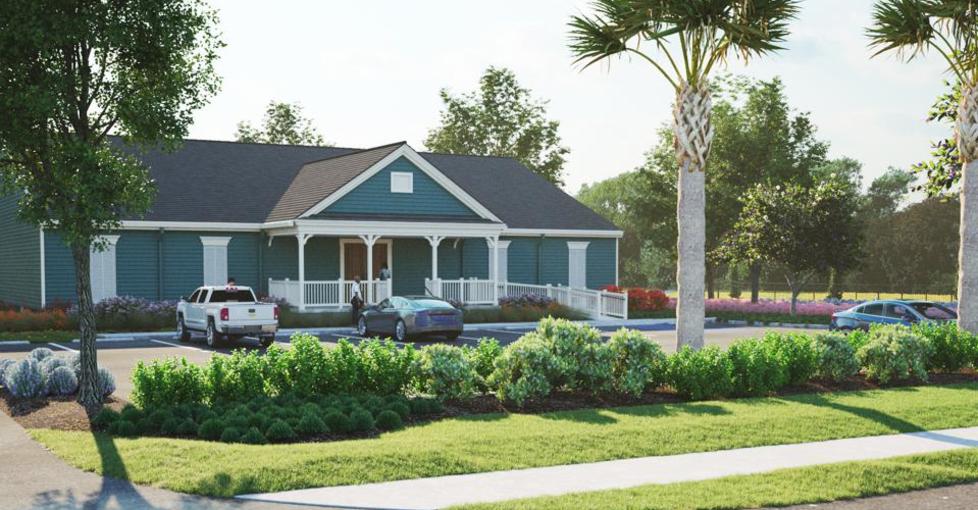
Mobile, Alabama (February 6, 2023) – At a February 3 event honoring the 110 survivors of the Clotilda, the last slave ship to arrive in the United States, the page was turned for the next chapter of a story that’s been being told for more than 150 years ... in secret for decades but now shared on a global stage.
This past weekend marked the “Spirit of Our Ancestors” festival in the Africatown community of Mobile, Alabama. As part of the annual tribute, which is coordinated by the Clotilda Descendants Association, the community came together at the site of the new Africatown Heritage House to witness the unveiling of a signature piece of artwork and to hear the news that the facility is set to open on July 8, the 163rd anniversary of the date the community’s founders arrived in the United States ... in shackles.
To understand the magnitude of this announcement, it helps to know some history:
Under the cover of night in the summer of 1860, a ship carrying 110 Africans slipped into Mobile Bay. The Clotilda, the last known U.S. slave ship, made its illegal voyage 52 years after the international slave trade had been outlawed. (Though it was illegal to bring enslaved people into the United States, domestic slavery itself remained legal until 1865.)
Upon arrival in Alabama, the captives were offloaded into the marshes along the Mobile River. In an attempt to conceal the crime, Timothy Meaher, the man who arranged the transfer, ordered the boat burned and sunk. Some captives remained in Mobile, enslaved by the Meaher family, and others were sold to Alabama plantations north of Mobile.
When slavery was abolished in 1865, the survivors dreamed of returning to Africa, but they didn’t have the financial means to make that happen. Instead, many of them pooled their limited resources to purchase land from the Meahers and turned it into the
independent community known as “Africatown.” There they maintained their African identities, continued to speak their own languages, established their own set of laws and – in the early years – even had a chief. They built churches, schools and businesses based on what they knew from their homeland, and they effectively created their own world on the northern end of Mobile.
In 2019, it was verified that the shipwreck of the Clotilda rested at the bottom of the Mobile River, providing a tangible link to the names and stories that have been passed down through generations of descendants.
Rendering of the exterior of Africatown Heritage House. Credit: Mobile County Commission
Africatown Heritage House is a community building that will house “Clotilda: The Exhibition,” to share this long-untold story. The facility was built by the Mobile County Commission but is a collaborative project that involves several entities working in partnership with the community. This includes the Alabama Historical Commission, which is leading the scientific efforts surrounding the search for, authentication and protection of the ship Clotilda and related artifacts, and the History Museum of Mobile, which curated, constructed and funded “Clotilda: The Exhibition” with generous support from other local organizations. The museum will operate Africatown Heritage House when it opens this summer.
The exhibition is especially focused on the people – their individuality, their perseverance and the extraordinary community they established. It will introduce the world to 110 remarkable men, women and children, from their beginnings in West Africa, to their enslavement, to their building the community of Africatown. Their stories will be shared
through a combination of interpretive text panels, documents and artifacts, including some pieces of the sunken ship scientifically verified to be the Clotilda.
Africatown Heritage House and “Clotilda: The Exhibition” will open to the public on Saturday, July 8. Called “The Landing” by the descendants of the Clotilda’s survivors, this date marks 163 years since their ancestors arrived on American soil, against their will. Events and activities in acknowledgment of the date’s significance are being planned by the Clotilda Descendants Association and other local entities.
Africatown Heritage House will be open from Tuesdays through Saturdays, from 10 a.m. to 5 p.m. The exhibition will have limited capacity, so tickets should be purchased in advance. Tickets will likely become available online in early summer.
For more information about the facility and the exhibition, please visit Clotilda.com, which is operated by the History Museum of Mobile. The latest details will be shared as they become available.
For a growing set of press materials about this moment in history, please refer to the Media Packet here. More resources will be added to this collection in advance of the opening of Africatown Heritage House and “Clotilda: The Exhibition.”
Local artists Frank Ledbetter and Charles Smith collaborated on a sculpture that provides an additional and moving way for visitors to learn the stories of Africatown and the descendants.
The sculpture was unveiled as part of the annual “Spirit of Our Ancestors” festival this past weekend. Credit: Mobile County Commission
NOTE: This song was composed as a tribute to the 110 survivors of the Clotilda and has been shared with the permission of Jeremy Ellis, president of the Clotilda Descendants Association.
ADDITIONAL NOTE: A limited number of renderings of Africatown Heritage House and the new exhibition are available upon request.
The new Africatown Heritage House was featured in National Geographic Traveller (UK) and Forbes. Click the link to read the full articles.

